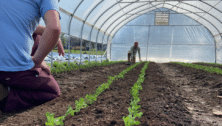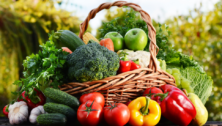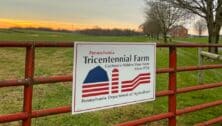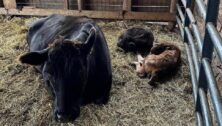Chester County Ag Notes: Cow High Tech
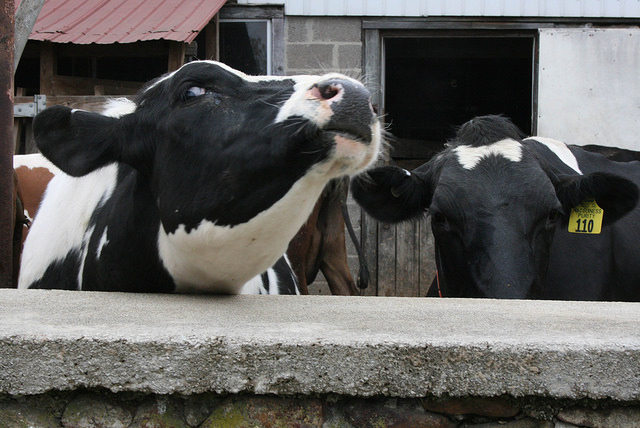
By Duncan Allison
The dairy industry is a tough business due to the reduced demand for milk and the steady annual increases in productivity. Farmers take years to build up productive dairy herds but the cows must be milked every day – you cannot turn off the tap and not feed the typically 1,500 lb. cows if milk prices are only at or below the cost of production.
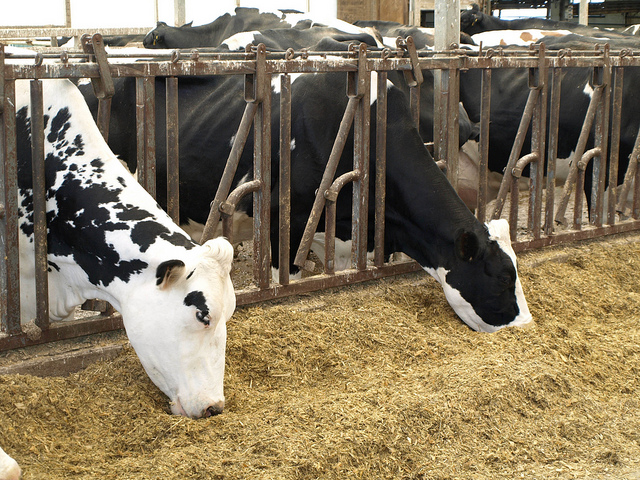
Running a dairy herd is above all a business and each cow represents a significant investment since it has taken around two years before the cow can produce any milk.
Clearly it makes economic sense to ensure the highest level of productivity from each animal that is being fed (100 lbs. /day), milked twice each day and housed in an expensive barn with its special bedding and regular manure removal.
Genetics play a key role in this process and the progressive farmer carefully selects the most productive and healthy cows to be fertilized by the best available male germplasm.
Few dairy farms still have their own bull or bulls and rely on artificial insemination using a carefully selected donor bull.
Rusty Herr had worked with his father Karl Herr on their Holstein dairy farm in Oxford and had recognized the importance of a herd that consisted of the most healthy and productive cows.
Since only those cows with a history of good milk yields and sound health would be bred to supply the heifers and future milking cows it was critical to have extensive data for each animal – milk yields, health, genetics etc.
As a result over the last few years he has developed some high pedigree Holsteins which have better metabolic health and are highly productive.
Cows can only produce milk when they produce a calf. The gestation period is 9 months and a few months later the cow is fertile again. Technology has been developing that facilitates the breeding process to improve dairy herd productivity.
This is where Rusty Herr and veterinarians enter the picture. Want to enhance your dairy cows for breeding and improve herd productivity?
Make use of Golden Rose Genetics in Christiana, Lancaster County and the expertise of Rusty Herr and White Oak Veterinary Clinic.
Bulls can be dangerous and require special care and may not represent the best genetics available. As a result it has been standard practice on 80% of dairy farms to artificially inseminate cows when they are naturally fertile again with purchased semen.
Artificial insemination is carried out by professionals with consideration for the cow so that there is no pain involved.
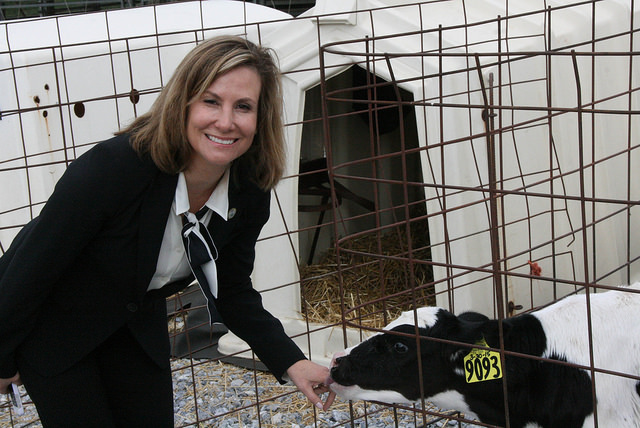
Since a cow can only produce one calf a year and the dairy herd only needs heifers (female calves) it also makes sense to use sexed sperm and so avoid the cow producing males which have to be sold.
The latest development, still only practiced on a few dairy farms involved in providing breeding stock and participate in dairy shows, is to make use of in vitro fertilization with an egg obtained from a highly productive cow and then fertilized with semen from a bull that has produced highly productive progeny.
This involves significant collaboration between all the different parties.
This is one of the roles that Rusty Herr plays. He finds dairy farmers with high producing cows and on those few days when the eggs are most fertile, the cows are transported to Rusty’s dairy and specially designed room where Dr. William Croushore and his two assistants carefully remove eggs/oocytes and place them in a special solution and kept at a constant temperature and shipped overnight to a lab in Wisconsin.
The relevant parts of the cow are sedated so that there is no pain or discomfort to the animal. I can vouch for the care taken in the procedure as I witnessed it.
At the Wisconsin lab the egg is fertilized with sperm and watched for a few days so that the viable egg(s) can either be overnighted for immediate fresh use or refrigerated in liquid nitrogen until a request comes in.
Embryo transfer has become increasingly efficient and currently results in 60-70% chance of conception. Rusty provides the central facilities for the IVF procedure and coordinates all the activities with the farmers and Dr. Croushore’s White Oak Veterinary Clinic.
He also looks after his own Holstein dairy herd and carries out artificial insemination.
Connect With Your Community
Subscribe to stay informed!
"*" indicates required fields













![95000-1023_ACJ_BannerAd[1]](https://vista.today/wp-content/uploads/2023/03/95000-1023_ACJ_BannerAd1.jpg)































